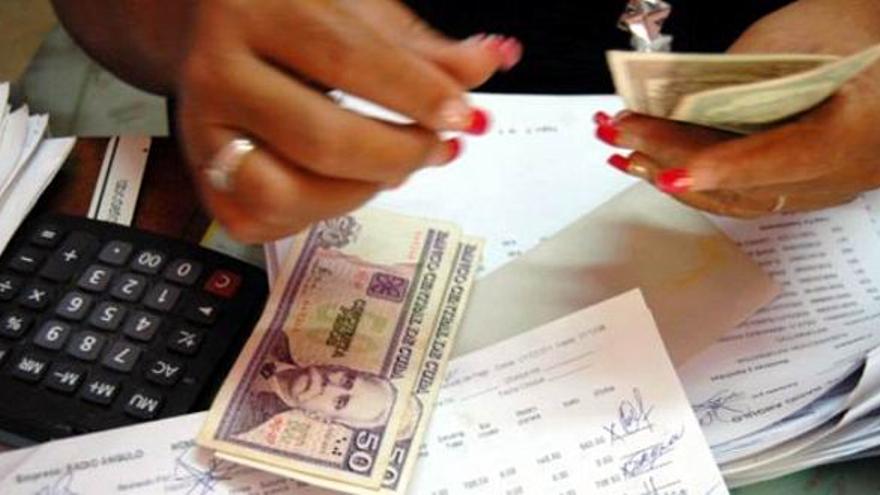
![]() 14ymedio, Havana, 21 October 2021 — Cuba will not have make a debt payment to the Paris Club until next year, according to the British agency Reuters. The document signed between the parties in June represents a new moratorium for the Government of Havana by postponing until 2022 the resumption of debt payment, whose arrears are currently estimated at 200 million dollars after meeting the deadlines was suspended in 2019.
14ymedio, Havana, 21 October 2021 — Cuba will not have make a debt payment to the Paris Club until next year, according to the British agency Reuters. The document signed between the parties in June represents a new moratorium for the Government of Havana by postponing until 2022 the resumption of debt payment, whose arrears are currently estimated at 200 million dollars after meeting the deadlines was suspended in 2019.
The document also provides for a readjustment of the new payment terms, but Reuters’ sources, diplomats from five countries involved, do not know if there will be penalties for non-payment.
Last Friday another agreement was overridden, this time with Russia due to the delinquency of a loan that Havana also stopped paying on last year, which contemplated an increase in the final amount by 11 million dollars, for the late payment of interest.
In 2015, Cuba signed an historic agreement with the Paris Club, which forgave the country $8.5 billion of a total debt of 11 billion, with a commitment to pay the remaining amount in installments until 2033. However, the Island stopped paying the full installments in 2019 and in 2020, with the pandemic in full force, did not pay a single dollar.
The agreement had been advanced in June, when the parties announced modifications after a meeting between the Cuban deputy prime minister, Ricardo Cabrisas, the main negotiator of the nation’s foreign debt, and Emmanuel Moulin, director general of the Treasury and president of the Paris Club.
At that time, the Cuban side blamed the defaults on the “unprecedented tightening of the economic, commercial and financial blockade of the United States and the impact of phenomena associated with climate change and the covid-19 pandemic.”
“I expect a fairly robust return of tourists that affects other activities, and that should improve the payment prospects a bit in 2022,” one of the diplomats told Reuters.
The reopening of Cuba’s borders, scheduled for November 15, will reactivate one of the first sectors of foreign exchange income for the Cuban Government, although the authorities’ forecasts expect 100,000 travelers who will arrive on the island this winter season, a small number compared to what is received in a normal year. If the forecast is fulfilled, the recovery will be slow and Cuba must continue to face multiple commitments.
“I understand that most of the payments are also on hold,” said another of the sources of the British agency, in relation to the debt with Russia, Japan, the London Club and Mexico, among others.
In the original 2015 agreement, the Paris Club forgave Cuba all interest on the debt until 2020. Afterwards, only 1.5% of the total outstanding debt remained, a part of that money was allocated to funds for investments in Cuba.
“We are united in the conviction that the agreement must be saved and we believe that the Cubans agree,” said a diplomat from one of the Paris Club countries a year ago. The rich countries thus hope to get at least some of what is owed to them.
Havana declared its foreign debt to be 18.2 billion dollars in 2016, but several experts indicate that it has increased significantly since then. The country is not a member of the International Monetary Fund or the World Bank.
The Paris Club is made up of Australia, Austria, Belgium, Canada, Denmark, Finland, France, Great Britain, Italy, Japan, the Netherlands, Spain, Sweden and Switzerland.
____________
COLLABORATE WITH OUR WORK: The 14ymedio team is committed to practicing serious journalism that reflects Cuba’s reality in all its depth. Thank you for joining us on this long journey. We invite you to continue supporting us by becoming a member of 14ymedio now. Together we can continue transforming journalism in Cuba.
